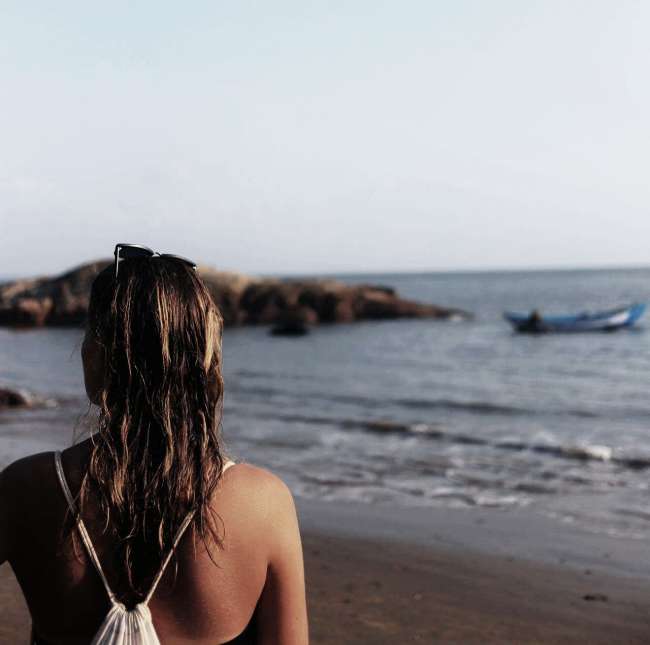Gokarna, my Indian home!
প্ৰকাশিত: 16.03.2017

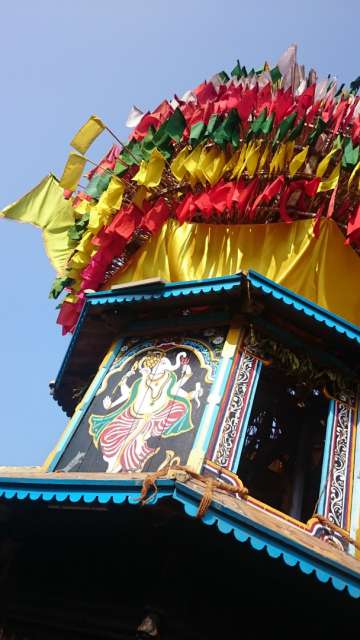
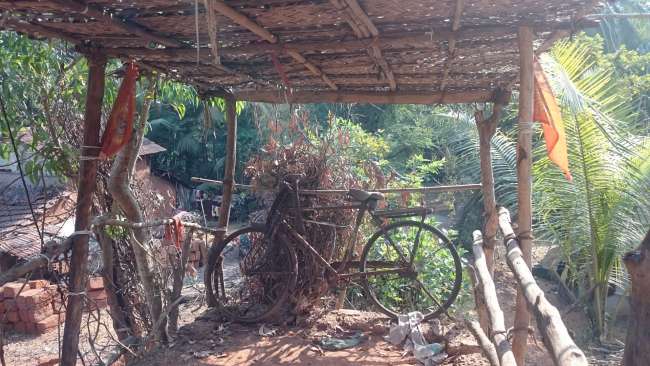
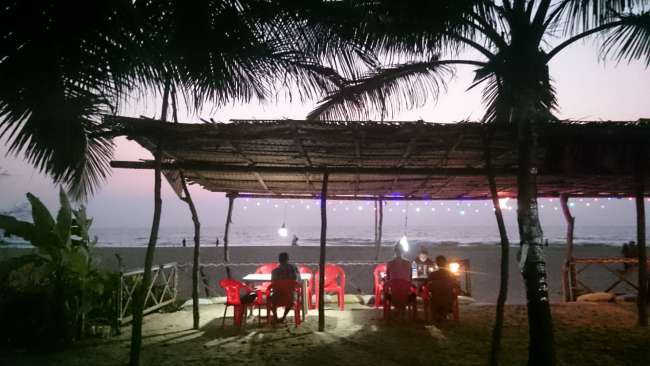
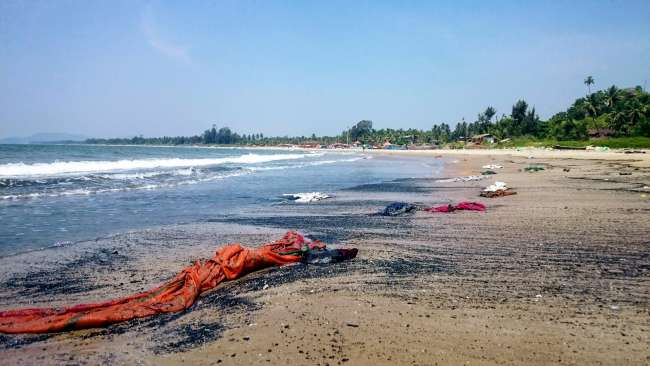
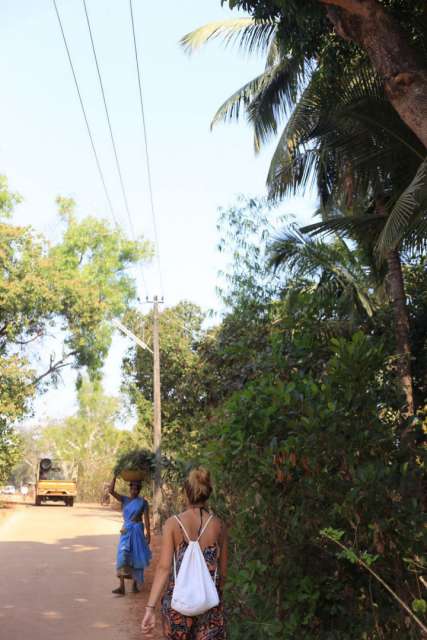
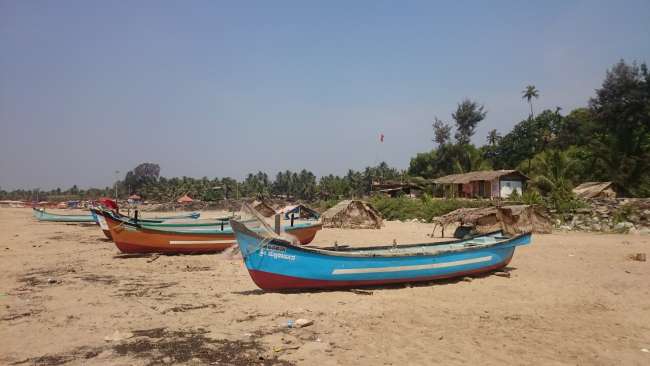
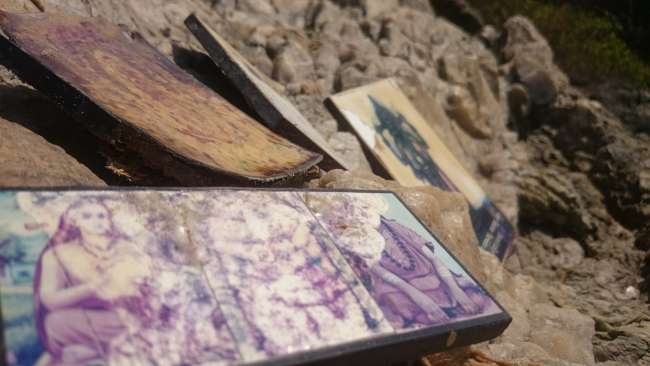
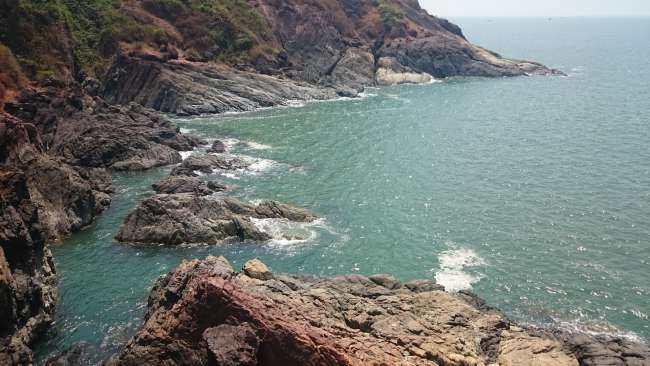
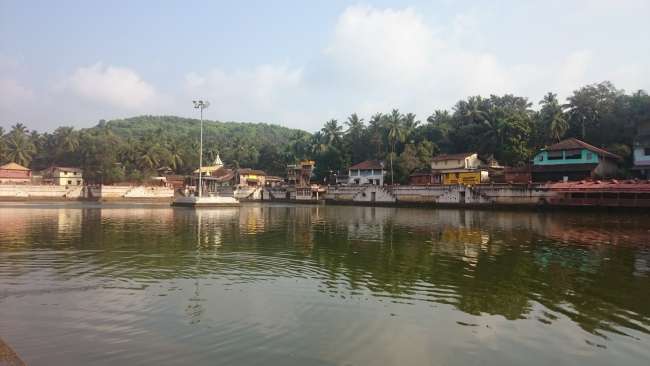
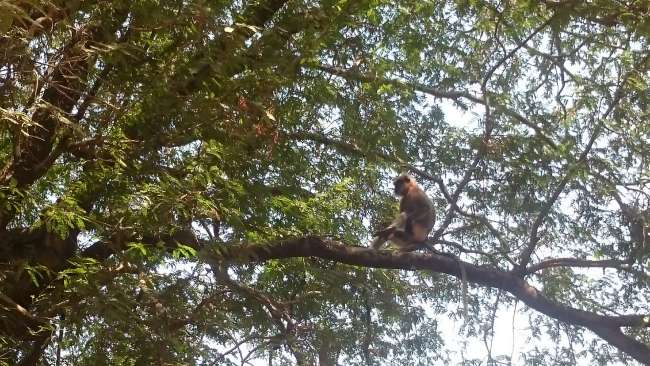
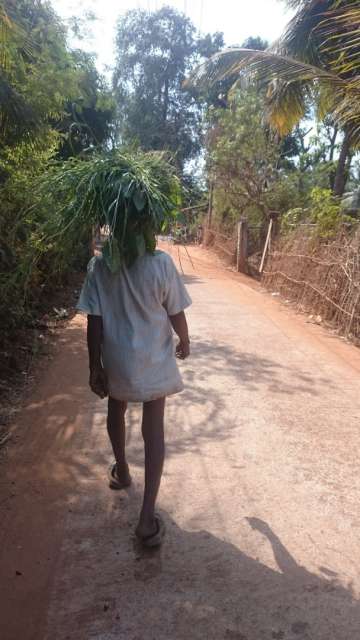
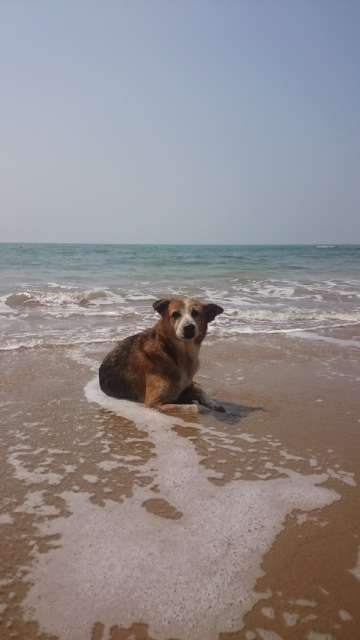
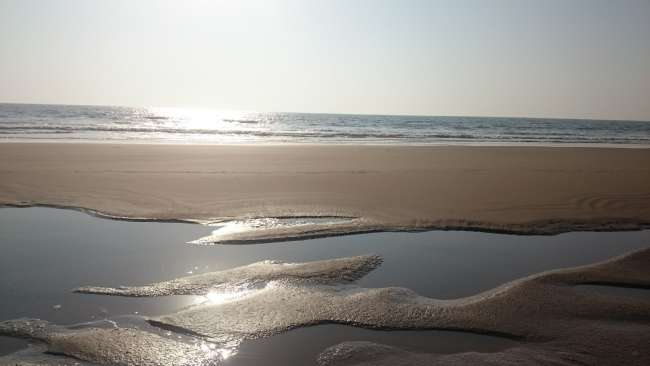
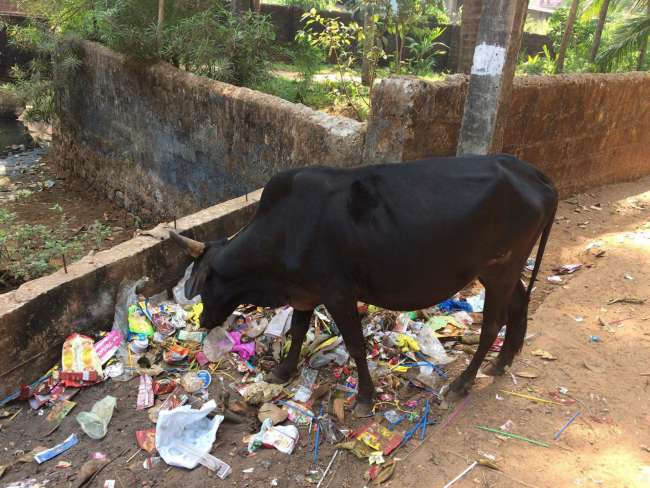
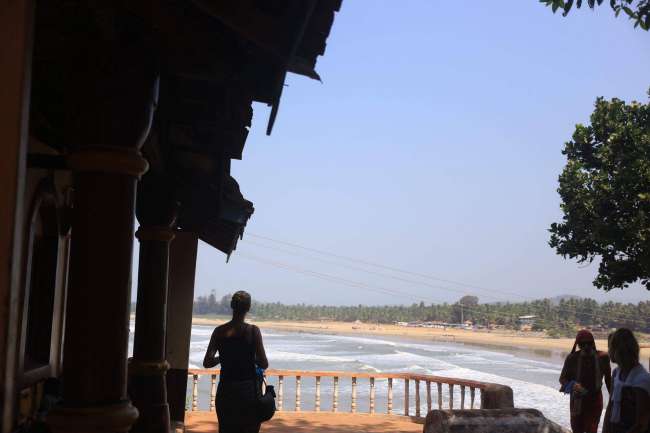
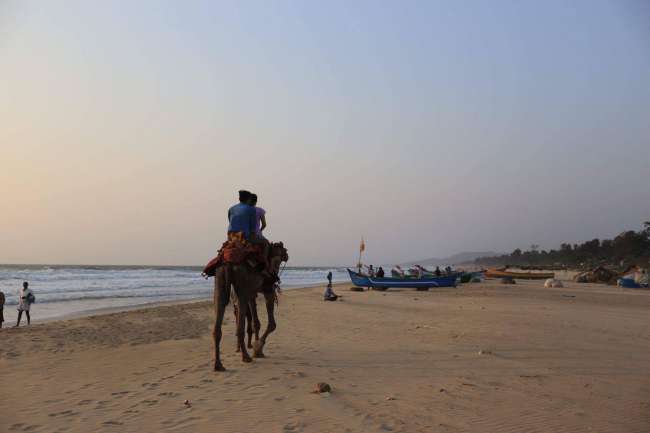
নিউজলেটাৰ চাবস্ক্ৰাইব কৰক
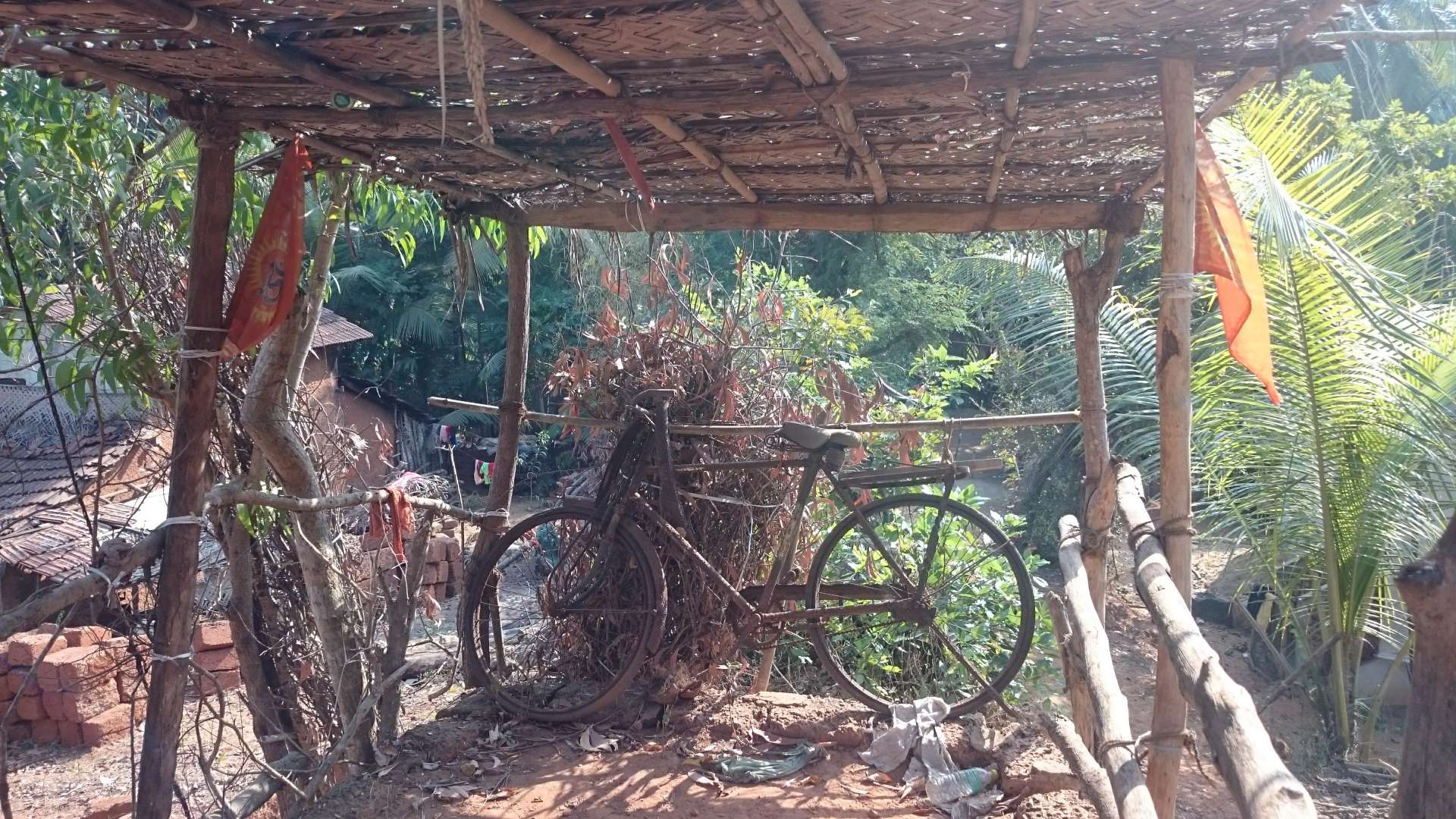
🚩Ganpati House, Kariappa Road. That was our accommodation information, which we also gave to the taxi driver. The driving style was legendary. Jule experienced near-death twice while I was sleeping. Gokarna is not in Goa (yes, Goa is a state, not a city ;)) but in Karnataka, right on the coast. When I woke up, I saw backwaters again and lots of green: fields, forests, and hills. But where is the sea? No chance! We continued driving through the villages and the taxi driver kept asking about Kariappa Road. On top of that, the dialect or language is different again, and he had difficulty communicating with the people. And we drove and drove...poor houses, fields, palm trees...but no trace of seawater! Finally, Ganpati House! But no volunteers and no Mr. B (our boss). Only a skinny Russian on the terrace, who Mr. B contacted with his Indian number to find out where we should go. He accompanied us to Hemashree, where we were supposed to go. We walked through fields and dirt roads, squeezed through so-called barriers/fences made of two tree trunks placed close together, so that the cows don't run over the fields and nibble. Another barrier and another one, suddenly the sound of the sea! Wow, we crawled out of the last bush and arrived at a long and peaceful beach. And right there, the Hemashree, our new home! ♡
Mr. B was already waiting for us and we thanked the Russian for his help! Shirley (from Australia) and Kevin (from France) were two more people from the EduCare / EVT (EcoVolunteerTravel) program, and in the coming days Dani (from Colombia) and our little Leone (from Berlin) would also arrive. But first, back to our home: Hemashree is a restaurant on the beach, surrounded by palm trees. Among all the palm trees are huts; Jule and I got one of them. We opened the door, threw ourselves on the bed (otherwise there was only a chair and a small wooden table inside) and we were happy and clapped! HOW AWESOME IS THIS. WE ARE LIVING LITERALLY ON THE BEACH. SOUNDS OF THE SEA IN BED AND THE VIEW FROM MORNING UNTIL EVENING! WOW 🌟

》(Photo by Leonie S.)《
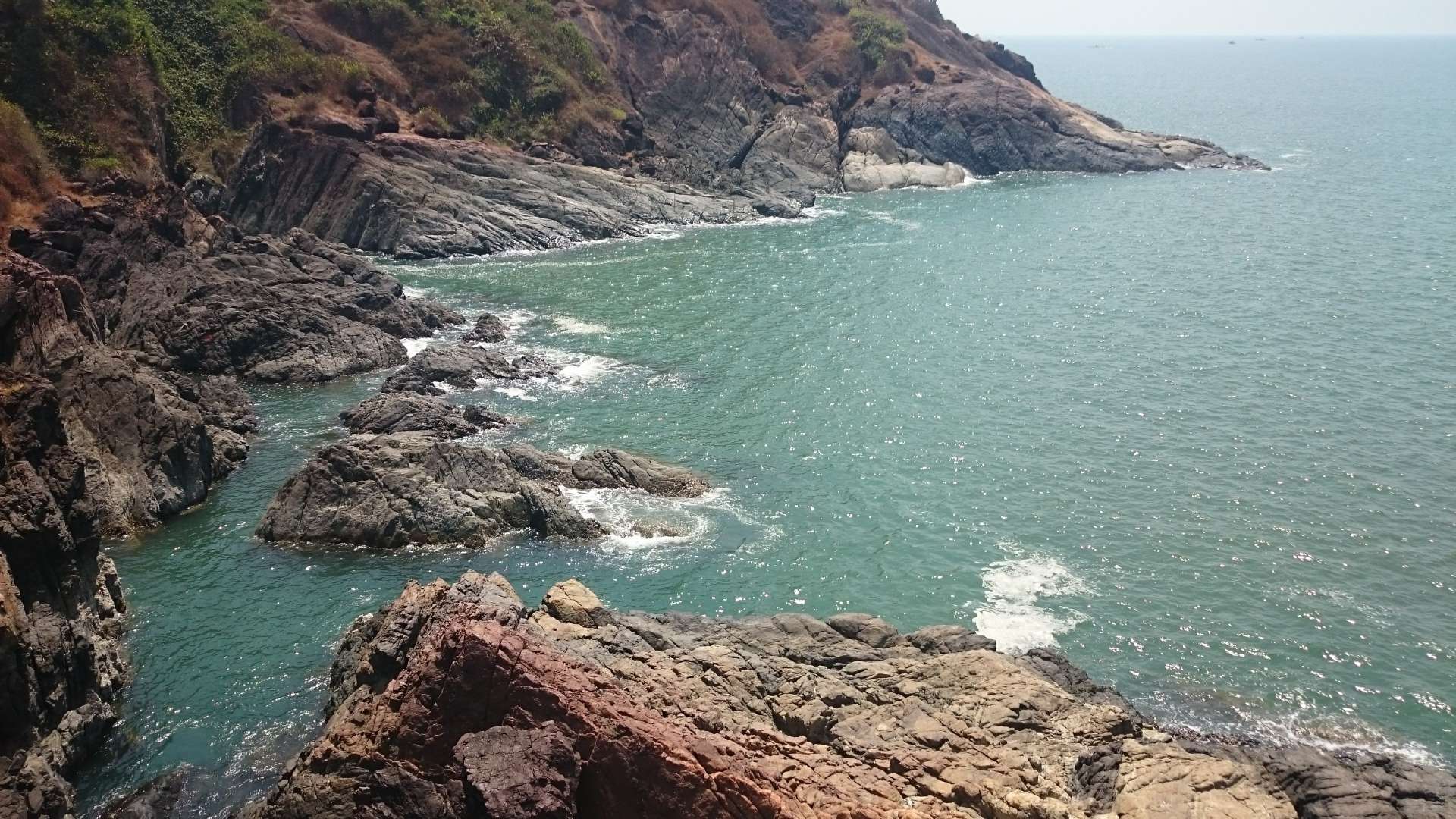
When we were on our way here by taxi, we were expecting the worst...in the middle of nowhere. And now we live right on the beach, it's quiet and beautiful. The only negative thing: Indian toilet, which means squat toilet, i.e., hole in the floor. Well, and the cold water for showering. No temperature regulation here! But in hindsight, this problem turned into a positive, as we needed this refreshment in the daily heat.
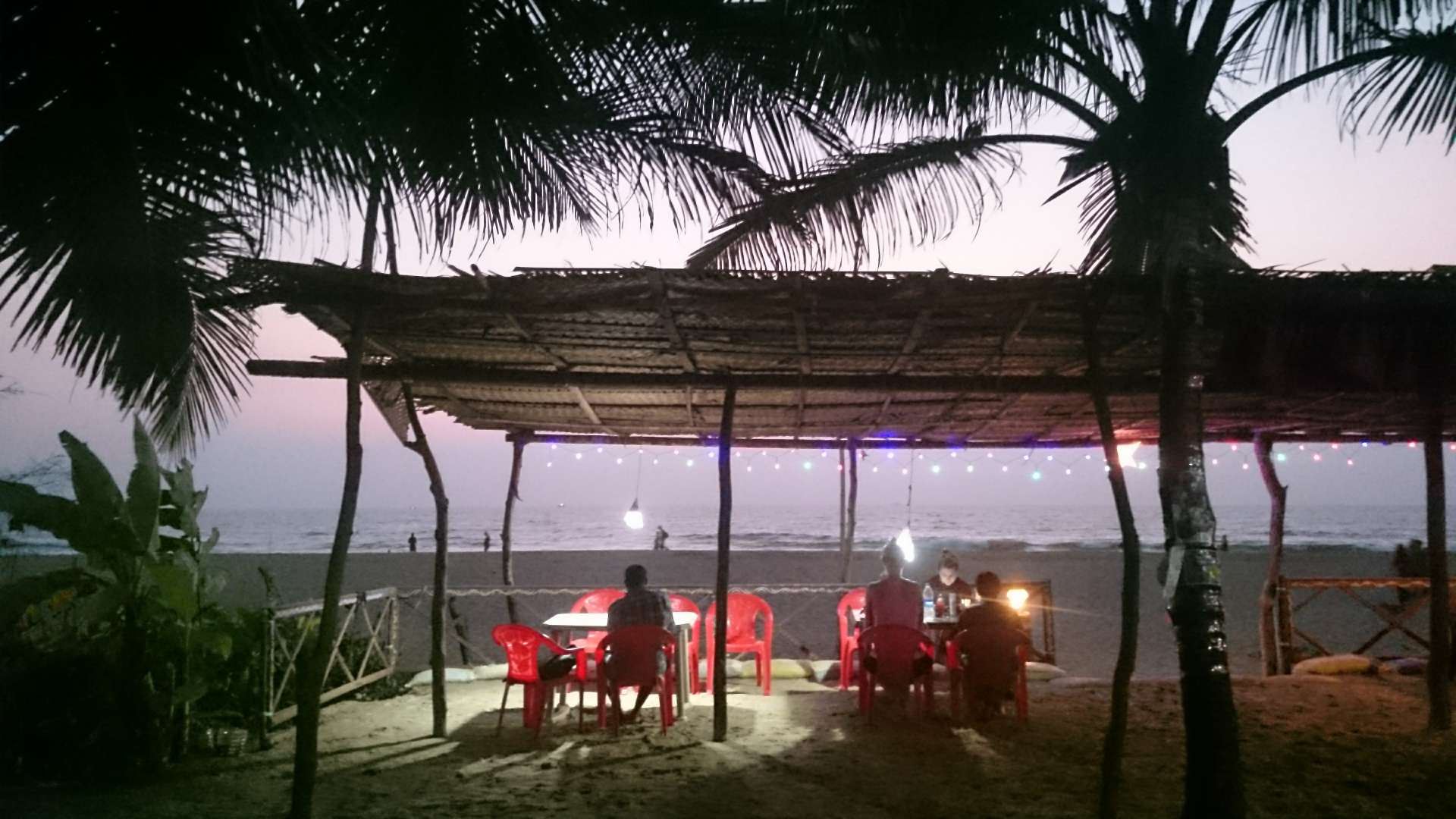
After freshening up, we sat down with the others and discussed everything else...there are no current projects running here! What the...!!!! Our boss gave a speech about "exploring and feeling everything surrounding you. The area..." then he talked about his plans and what would be done here: community mapping, waste management, blah blah...and we were supposed to take care of it. So the following day, the two of us went out, rented the most rickety bicycles (80 rps/day) that I've ever seen, and explored the area. Schools, temples, small shops, a church, plantations, a mosque, fields, villages, huts, and finally a ferry that crossed the river.
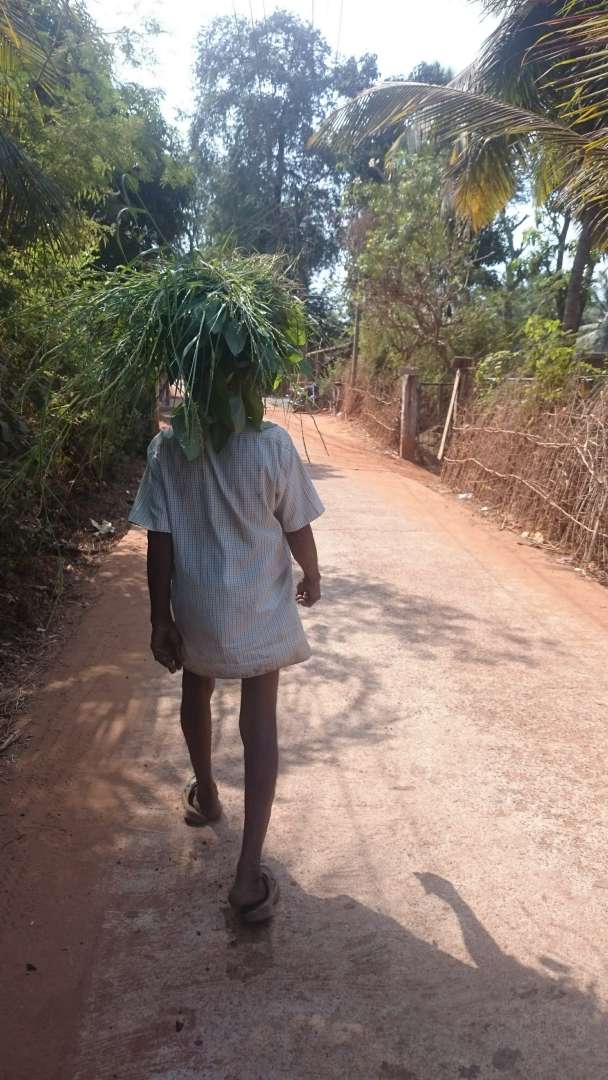
In the morning, we both went to the beach, Jule went for a run and I did a few workout exercises, and then we went for a well-deserved swim! Swimming was quite challenging as the waves didn't give you any peace. But the water was pleasantly warm, perfect for me! Additionally, the beach at our location was very clean, unlike the areas where people from the city or near the fishing boats were hanging out. The fishing boats come back to the beach early in the morning with their catch, pick out the small fish from the nets, and the women then sell them on the roadside.
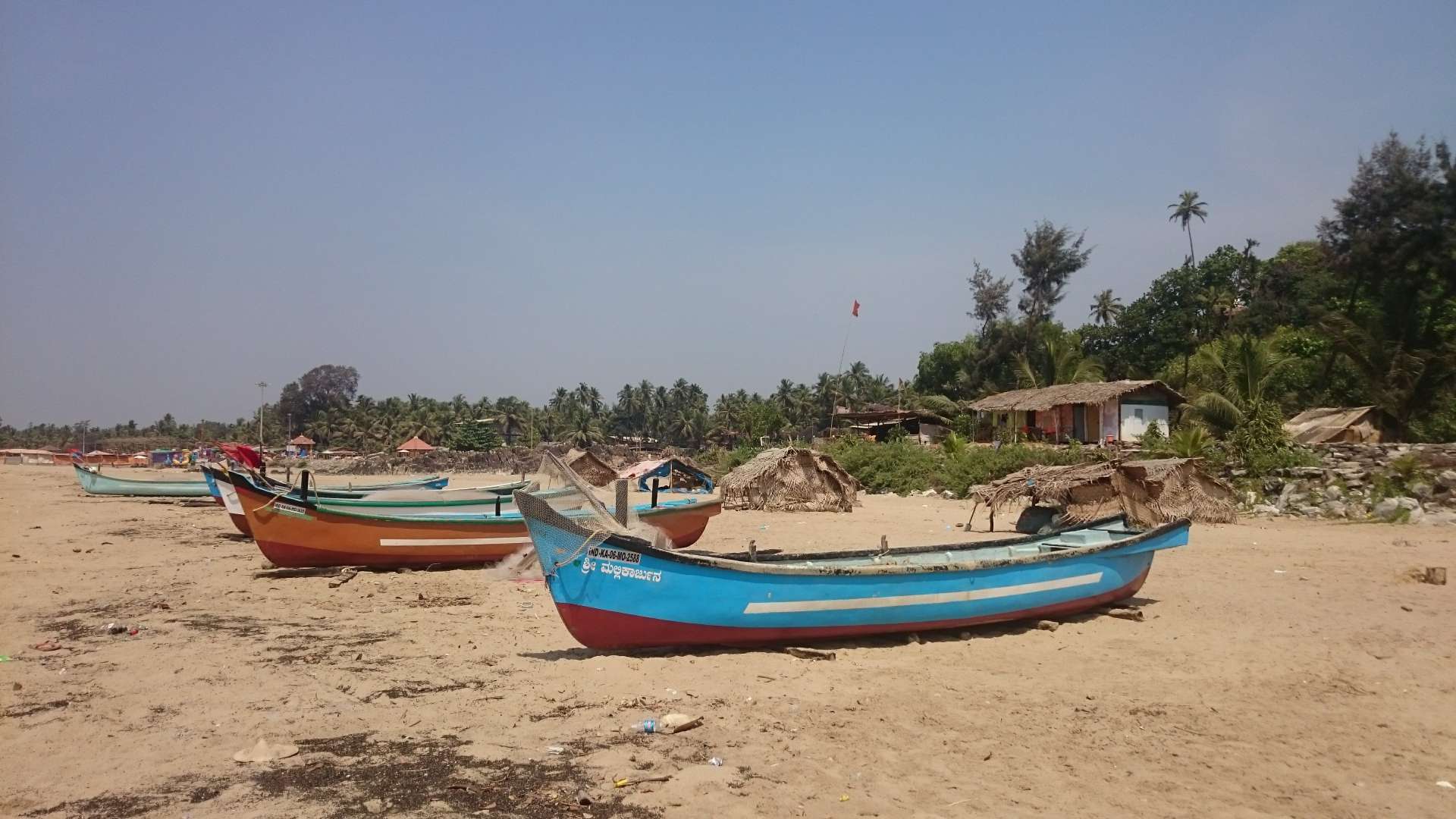
Cleanliness and privacy were pleasant. There were mainly tourists on the beach, bathing in bikinis, i.e., people staying in resorts. It was quite pleasant, as we had already experienced being stared at or photographed, not only on the beach. Women in India bathe in their clothes or even saris. They justify it with their tradition, so a Western "naked" woman stands out. In addition, not all households in India have private toilets or showers. So it happens that people do their business on the beach and/or wash themselves in the sea. That's about cleanliness. There were really dirty spots on the beach. At the other end of the beach, where it led to the city, stood the Rama Temple on the cliffs.
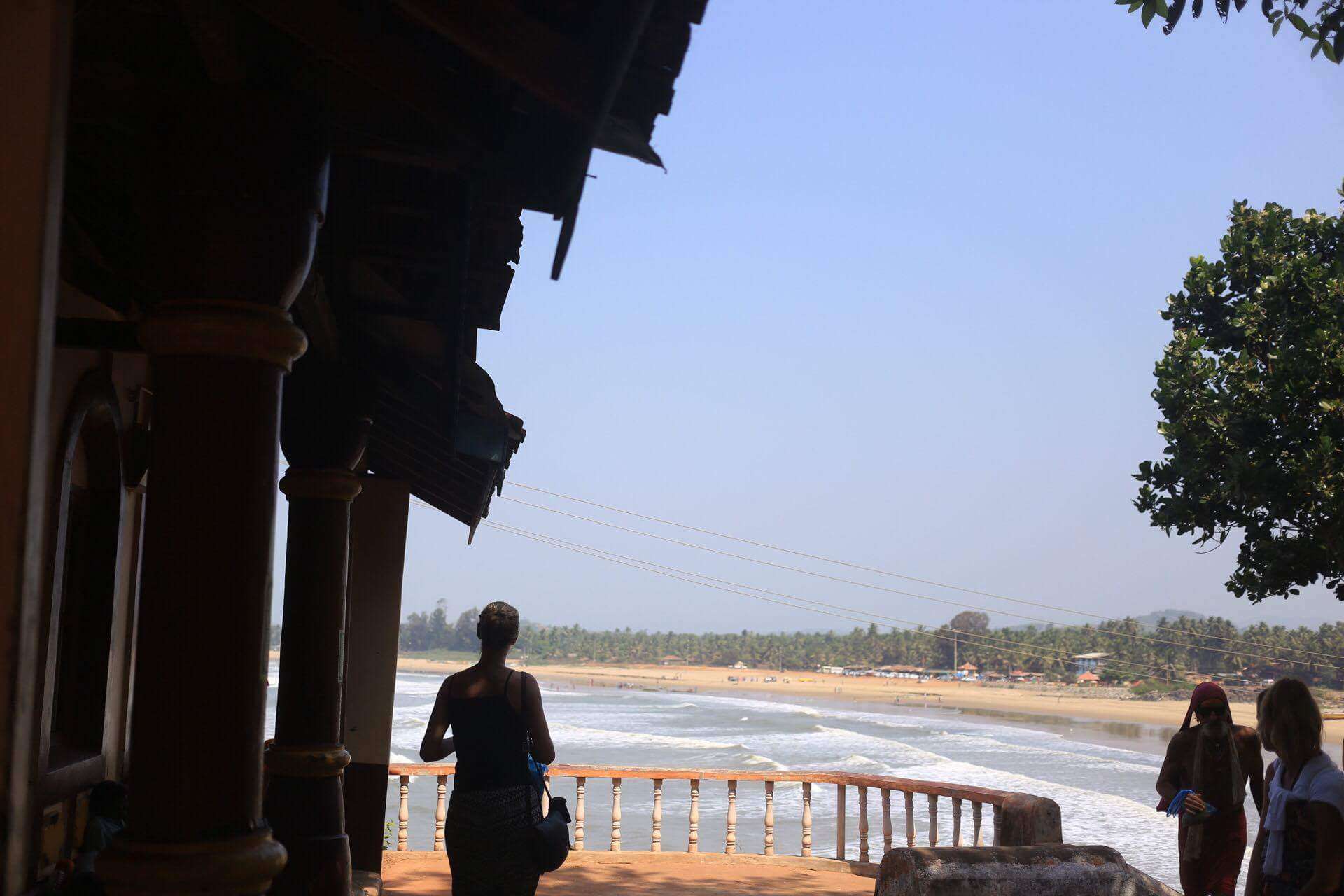
》View of the Main beach from Rama Temple (Photo by Leonie S.)《
There, many people avail themselves of the holy spring water, which, in hindsight, turned out to be not clean or good water for some.
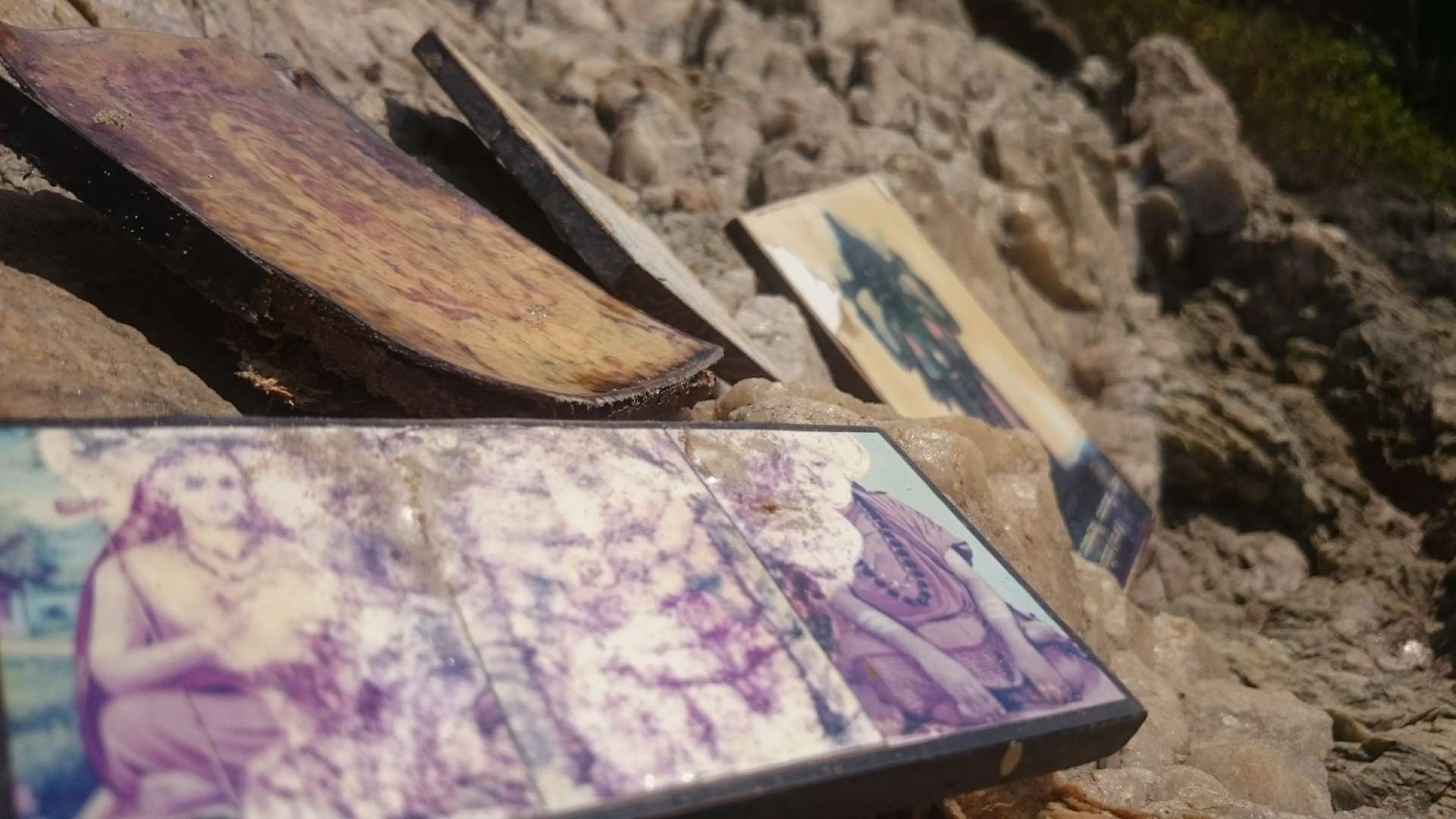
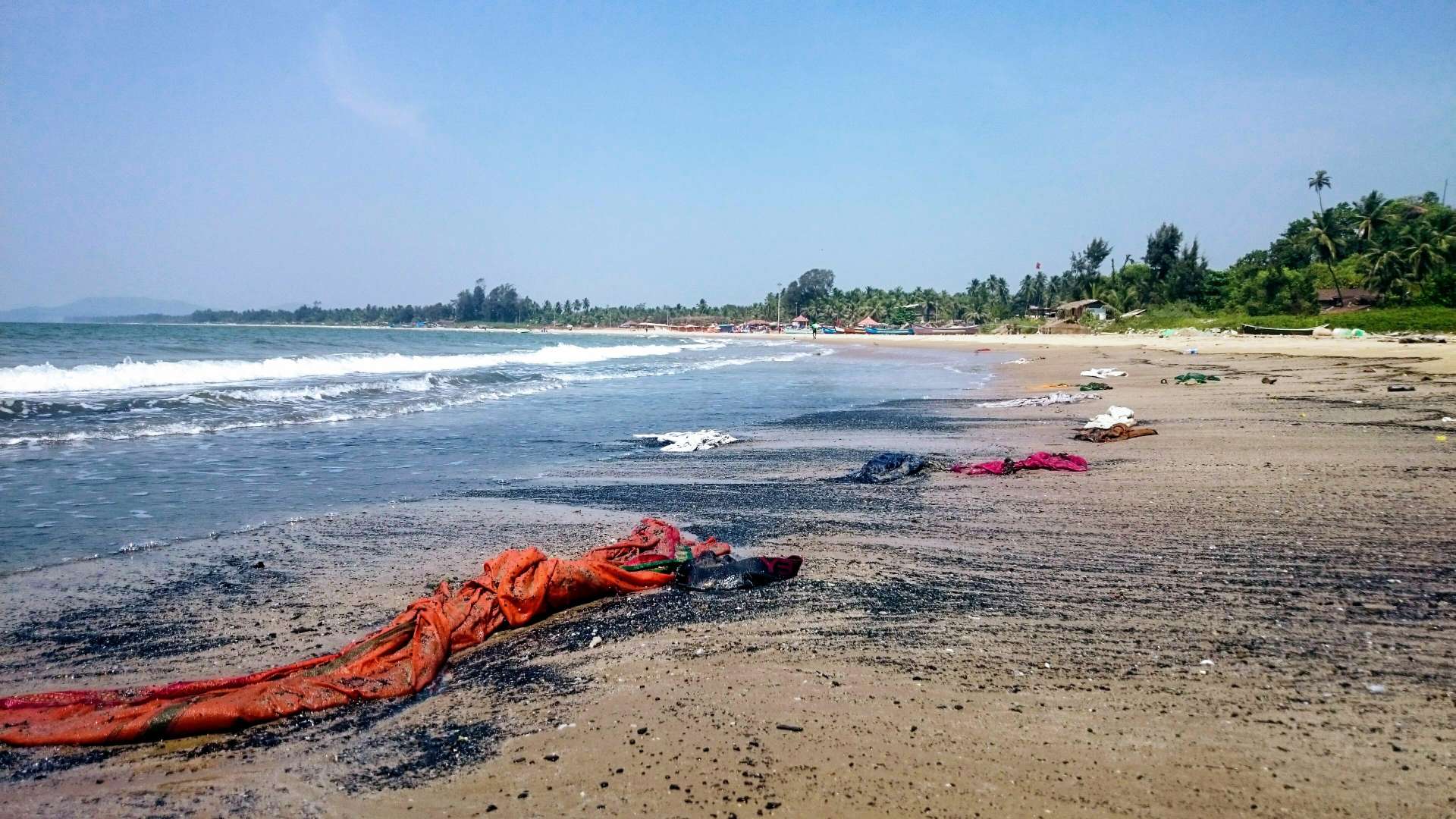
That will be our task in the coming weeks. Let's do it - no problem!
What else can I write about Gokarna? It is a small town with practically one main road where there are many small shops with souvenirs, food, and everything you need. Coconuts on every corner and great restaurants with Indian food and especially breakfast (more on that soon)♡ Temples in between where women stand and sell flowers that you can put in your hair. Not all temples seemed accessible to tourists. Behind the temple, there was a huge wooden cart with a colorful tower or wooden structure adorned with flags. Probably had something to do with Hinduism.
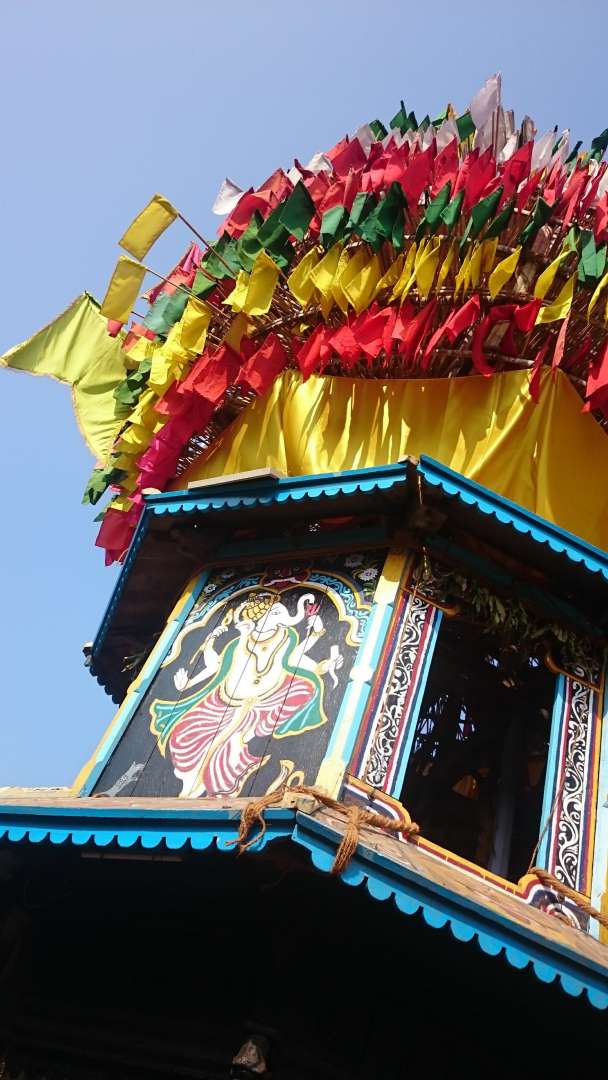
In the midst of it all, the honking of mopeds and rickshaws that want to pass by and hustle. So it's all a bit hectic, but still quite peaceful, considering the Indian conditions. Maybe another funny fact for those who don't know: you always enter every room barefoot! Shoes stay outside!
Another thing that was very unusual were not only the thousands of dogs running around freely but also cows! And they are small too. Even for those for whom the cow is not sacred, it still has a special significance. Killing or even just hitting a cow is not accepted. You have to be especially careful on the roads, with the crazy traffic, as the cows walk pretty slowly along the road or just lie down in the middle. They practically always have the right of way, and anyone who harms a cow in traffic can be punished. Most animals seem to be mostly homeless but hungry, which is why they eat the garbage in the streets and bazaars, including pollutants like plastic.
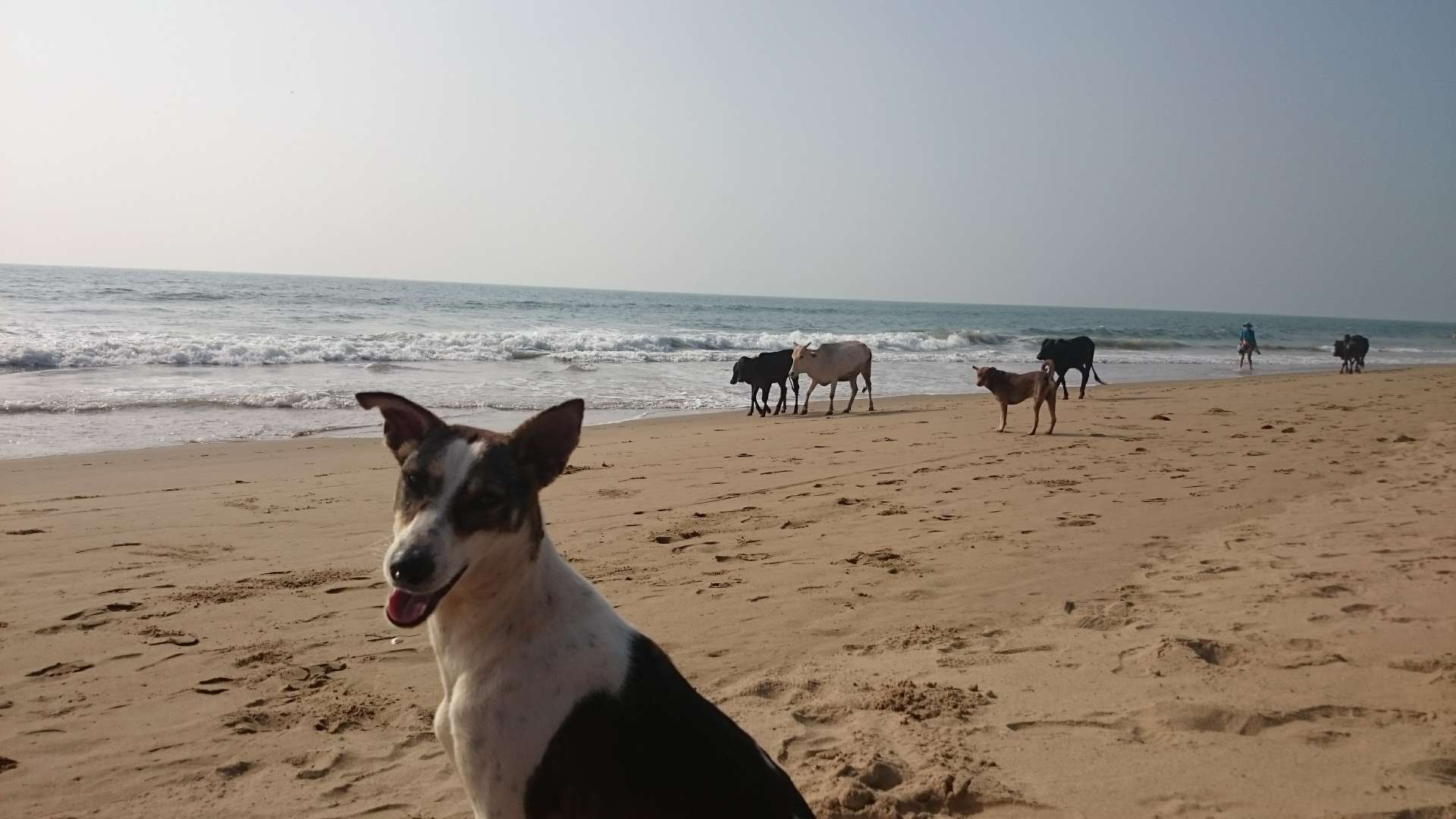


নিউজলেটাৰ চাবস্ক্ৰাইব কৰক
উত্তৰ
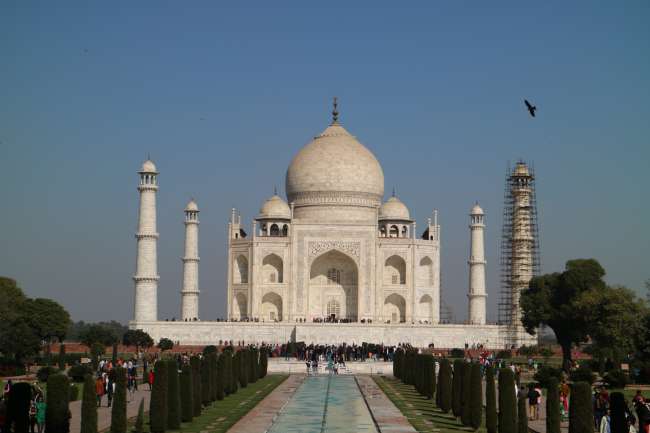
ভ্ৰমণৰ প্ৰতিবেদন ভাৰত

